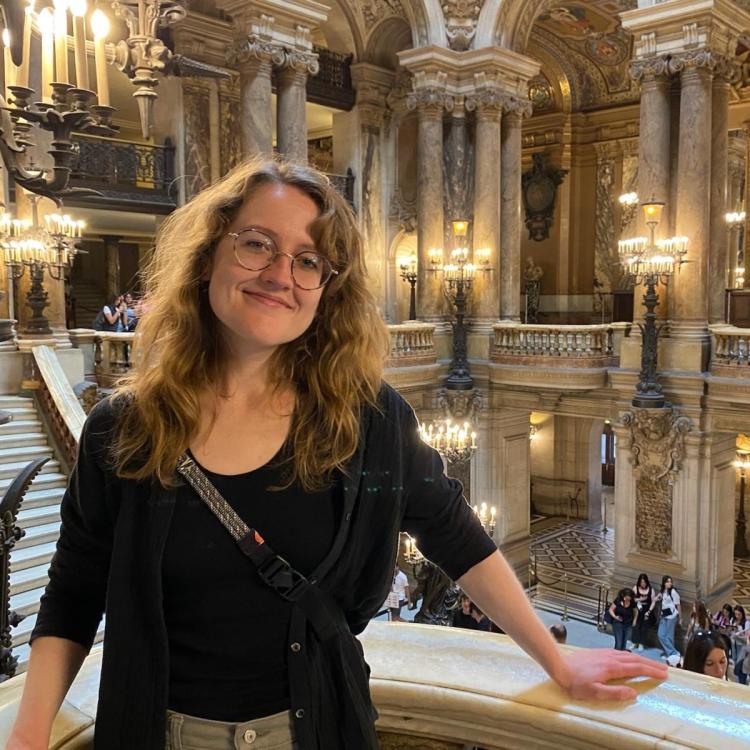
Katie Hobbs, BA '16
This month’s Smithsonian magazine special report features the research and writing of Mizzou alum Katie Hobbs, BA ‘16. Funded by a National Park Foundation Inclusive Storytelling grant, Hobbs' ongoing work on Mina Miller Edison was part of the publication’s American Women’s History Initiative.
While at Mizzou, Hobbs majored in English and history and earned a minor in music. Because her studies spanned several different departments, Hobbs says the College of Arts & Science gave her a great foundation in interdisciplinary scholarship and research, which has fueled her academic success and continued work today.
Now a PhD candidate at University of California, Berkeley, Hobbs is finishing up her dissertation, which is a literary history of the women’s rights movement in nineteenth-century Britain. Her research is especially focused on “the long, chaotic history of marriage law reform and how women writers — who lacked parliamentary representation at the time — rewrote and reformulated political and legal theory through the language of Gothic romance.”
I knew within half an hour of my first English course — Anne Myers’ John Milton class — that I had stumbled onto something really good.
Hobbs’ investment in the relationships between literature and history began in Mizzou’s English and history classrooms. Looking back, she says, “I knew within half an hour of my first English course — Anne Myers’ John Milton class — that I had stumbled onto something really good. That semester I not only learned how great Paradise Lost is, but I also learned how to better integrate primary and secondary source materials into a compelling research paper.”
Hobbs also remembers Frances Dickey, another professor of English at Mizzou, for teaching her a lot about scholarly publication and being “an amazing mentor for research and writing.” Hobbs jokes, “I’ve also been fixated on The Waste Land since 2015, and that’s at least partly Professor Dickey’s fault.”
Hobbs says that her historical research and writing owe a lot to Ted Koditschek from Mizzou's history department. The undergraduate thesis she wrote under Koditschek’s supervision even became the basis for her dissertation.
One of Hobbs’ favorite Mizzou memories was a summer study abroad program with Professor of English Bill Kerwin in Ireland. During this experience, Hobbs and her cohort traveled around Dublin, Cork and Galway, learning about Irish history and reading works by class Irish authors, including James Joyce, William Butler Yeats, and Elizabeth Bowen. Hobbs says, “I also ended up playing the fiddle in a pub and busking on the streets of Galway – not something I ever thought would happen through an English class.”
In addition to working toward completing her PhD, Hobbs currently works as a project historian for Thomas Edison National Historical Park (TENHP) in West Orange, New Jersey. Her research for TENHP focuses on Mina Miller Edison, Thomas Edison’s second wife and a powerhouse “home executive” who worked to redefine domestic labor as a formal profession that required just as much skill and training as the male-dominated fields of science and business. This research position allowed Hobbs to spend the summer of 2022 in the archives at TENHP sifting through documents and records related to Mina Edison, including Edison family letters, scrapbooks, payroll documents and journals.
As she continues on her journey to become a museum researcher and freelance writer, Hobbs is thankful for all of her experiences in the College of Arts & Science. She says, “My classes at MU really taught me how to balance close, thorough attention to detail with larger interpretive frameworks — an indispensable skill when figuring out how to construct a historical narrative or write for any audience!”
Hobbs with a mouse figurine from Mina Miller Edison’s desk